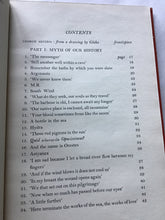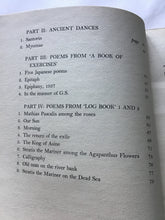Used very good.
INTRODUCTION
THERE IS no land and sea so haunted with gods and heroes as the
land and sea of Greece. Indeed there is something disturbing and
oppressive as well as inspiring in the thought of such a weight and
variety of history, such a radio-activity of the divine. The mountains
may stand for a moment clear and distinct, the sea may glitter in
"innumerable laughter, rock and tree and building may be outlined in
a heavenly peace against the purest of skies: yet one has only to move
a few yards, there need be only the slightest change in the weather,
and the whole scene is transformed into something wholly different
that is still wholly Greek. The Greek land- and sea-scape, in its clarity
and its mystery, its brilliance and its terror, in its stability and in its
hurrying movement, in all its contradiction is still the best basis for
attempting to understand the Greek genius. For it must be admitted
that most academic views of the Greeks are either incomplete or mis-
taken. The distinction betwveen the 'ancient' and the 'modern' Greeks
is positively harmful, since it disguises the most obvious facts that the
ancient Greeks were modern and that the modern Greeks are ancient.
Moreover, who are supposed to be 'the ancient Greeks'? The men of
Marathon? Long before Marathon the Greek seas were full of ships.
Small bands of sailors from insignificant but individual towns were
opening up the Black Sea, founding Marseilles, colonizing Sicily and
sacking Troy. And as important to the Greek and European spirit as
the Parthenon are the vast rock structures of Mycenae, the palace
dripping with the blood of kindred slain by kindred, the wealth and
savagery of the house of Atreus. Or, when we speak of 'ancient
Greece' are we thinking merely of Athens and the lonian cities from
which our arts and sciences began? If so, we are forgetting the włholly
different cultures of Sparta and of Crete and ofa hundred jealously
independent towns and islands. There is the arny, mostly from obscure
states, that, under Xenophon and Cheirisophos, defied the Great King
at his gates. Then there is Macedonia, the diffusion of Greek culture to
the banks of the Indus, 'glories to quote Seferis, 'buried in the depths
of Asia'. There is the intellectual conquest of the Romans by the
Greeks, and its brilliant results, the barbarian invasions (always an
element in the history of this beautiful and tortured land), the long
splendour of Byzantium, whose armies guarded civilization and whose
intellectuals defined law and dogma. There are centuries of dispersion






